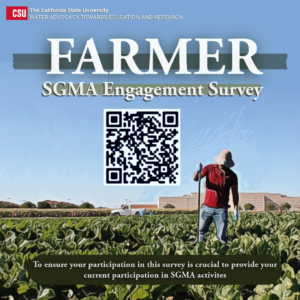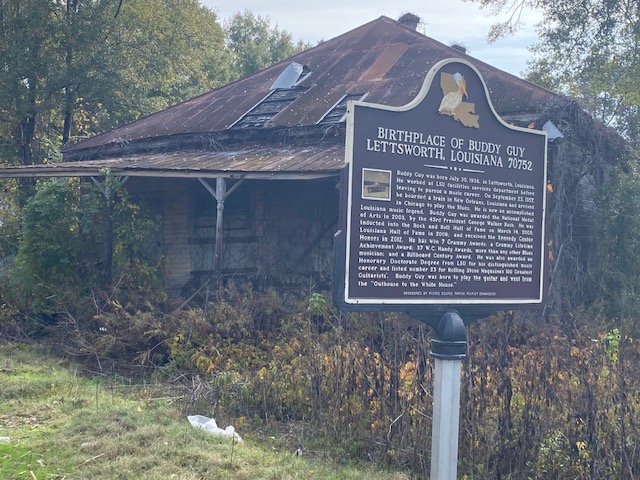By Don A. Wright
Many folks who work in California’s agricultural irrigation spent a good deal of time and energy fighting against proposed legislation in Sacramento that could have placed the farm economy of the state in jeopardy by legalizing the largest water grab in history. Not a grab by the ubiquitous “greedy corporate ag” – a grab by the state.
The laws, if they’d passed, would have given the state the power to curtail all diversions of water from the system designed to convey it to people and send it out to sea. And the authors and proponents have stated clearly – they intend to feed the proposals back into the hopper and try again in 2024. So, look forward to another year of fighting back bad legislation.
Do you, like me, find it curious how laws coming from Sacramento read like they could have been written in Pyongyang? Or perhaps the faculty lounge of a major university law school? I apologize for the redundancy.
I’ve been reading the California Globe, which much like the San Joaquin Valley Sun provides more balanced coverage most of the time and often insights overlooked, ignored by or completely missed in other news publications.
Chris Micheli is a contributor to the California Globe. He is also an attorney, author, law school professor (at McGeorge, not one of those Bay Area UCs) and partner in the Sacramento based lobbying firm Aprea & Micheli.
I also follow the Maddy Institute. And it caught my eye that Micheli was going to be speaking at an hour long webinar hosted by the Maddy Institute that took place Monday, December 4, 2023 on Zoom. The Maddy Institute is housed at Fresno State University (across the street south of Shaw to be completely accurate) and is a partnership with FSU, Cal State Bakersfield, Cal State Stanislaus and UC Merced, “to advance public understanding of public policy issues impacting the San Joaquin Valley.”
The Institute is named after Kenneth L. Maddy; “Ken Maddy was a 1956 graduate of California State University, Fresno who went on to graduate from the UCLA School of Law. In 1970, he won a seat in the State Assembly, beginning a 28-year career in the California Legislature. He held leadership positions in the Assembly and Senate where he played a key role in virtually every major state issue in the last quarter of the 20th Century.”
Prof. Mark Keppler is the Kenneth L. Maddy Professor of Public Affairs and Executive Director of the Maddy Institute. In addition to his work at the Maddy Institute, Keppler is a labor-management arbitrator with the Federal Mediation and Conciliation Service and a civil rights mediator for the U.S. Equal Employment Opportunity Commission. He’s also served as a Judge Pro Tem with the Fresno County Superior Court. (And if that wasn’t enough, and why would it be? If you’re going to be an over achiever, get out there and overachieve) – Keppler is currently the Chair of the Clovis Community Foundation.
I just found out, after 20-years with the Maddy Institute Keppler is retiring this month. He said he didn’t want to wear out his welcome. Good for him, but kind of a bummer for others who have come to appreciate his accessibility and willingness to swap fun stories. I have it on good word he’s not moving to Tibet or anything crazy. Now that we know who were dealing with here the following are my completely paraphrased notes from the webinar. None of the following is intended to be direct quotes. The event was recorded and will be posted on the Maddy Institute website.*
The Webinar
After brief introductions and the usual housekeeping issues associated with a webinar:
Mark Keppler: If government transparency is bipartisan, why isn’t it happening?
Chris Michelli: Most public awareness is focused on local and national law making. The state legislation isn’t followed as closely. Covid reduced the number of reporters covering  Sacramento as well.
Sacramento as well.
MK: Politicians and bureaucrats increasingly only want to come on friendly forums. Can’t get the State Auditor to come on the show. Is that product of hyper partisan “gotcha” journalism?
MC: Many lobbyists in Sacramento are reluctant to talk, even off the record. [He related as story about a lobbying colleague who got short sheeted. The reporter didn’t tell him he was on the record.]
Micheli believes elected officials should speak, in fact have a duty to speak. Admittedly reporters are looking for headlines that grab attention. But public servants don’t have the latitude to avoid the public.
MK: Politicians should be held to account if they won’t appear.
MC: A free and active press is very important to holding them to account.
MK: The reduction of the capitol press corps is a problem. Where does the political donation money go?
MC: Labor and enviros stick with Dems. From time to time a Republican can get some funding from police unions. In 1994 Republicans had a slight majority in the Assembly. Now the “super-duper majority” in both houses and the executive branch is held by Democrats.
MK: How can lobbying help and harm the political process?
MC: [Micheli is teaching a course on how laws are made at McGeorge and the role of lobbyist is explored.] Many believe lobbyists only advocate for or against a bill or regulation but education is also an important role. Also, it can be easier to reach out to a labor lobbyist than a multitude of union members as an example. [Sometimes lobbying lobbyists by lobbyists can be a good path.] There are about 1,200 registered lobbyists at Sacramento but only about 400 really doing it on a day to day basis. It’s the same with legislative staff, some work and stay knowledgeable about bills, issues and related subjects. Some don’t work so hard. [Eventually the work horses and show horses get separated, as Keppler may have said.]
MK: Has term limits decreased the level of expertise of elected officials?
MC: Voting should be the ultimate term limit. He doesn’t see a lifetime career in office as a good thing but 12-years is too short to develop the institutional knowledge needed to legislate effectively.
MK: Does large amounts of money help causes?
MC: It can sometimes get too much attention and look like a buy off. He said some of the nonprofits have been able to do a lot with a little. Big money has been thrown around and it has blown up in their faces.
MK: Will bipartisanship come back?
MC: It’s going to be a while before it returns to California. Washington DC has great parity now in both Houses but it’s still very polarized. In the 1990s when Micheli started lobbying there was much less hyperbole and partisanship in debates than now. After hours it was a friendly group. That was 25-years ago and the fraternizing has gone downhill.
MK: Is collegiality an important part of the legislative process? [Former Assembly Speaker and Democrat] Willie Brown helped raise money for conservative students.
MC: Collegiality doesn’t mean giving up core values. I have to reach across the aisle often.
MK: [Former Congressman] Cal Dooley said he shook hands with a Republican at the Capital Rotunda and caught hell from fellow Democrats. The issue of compromise – is it now a dirty word? How do you move legislation without it?
MC: Compromise has become a dirty word. You don’t have to give up ideology or run rough shod over anyone but compromise today means weakness. Twenty-five years ago compromise meant putting together the best bill but now if you don’t need help compromise isn’t a concern. The Democrats don’t need or want to consult with Republicans in Sacramento. “Sacramento has become a bill making factory and I mean that pejoratively.” They are adding 2,500 bills per year and at that volume they can’t do them justice.
MK: Can a veto from Governor Gavin Newsom be an alternative?
MC: That’s a potential avenue but not a guarantee. Some politics can enter in veto decisions but policy still matters. And there has to be a level of courtesy to approach the legislators. Even if you don’t change their minds.
MK: Compromise as weak?
MC: It’s not viewed in a positive way.
A question from a viewer asked if the ballot proposition should be made more difficult.
MC: Don’t do anything to make ballot propositions tougher. It started as an anti-special interest [farmers against the railroads] and that’s flip-flopped. It has become very expensive, $5 to $15 per signature to get it placed on the ballot. [It can require millions of signatures to get a proposition placed on the ballot.] It takes moneyed interests. But that doesn’t mean to curtail it. We the people share the law making power with the legislature.
MK: Is the proposition the only way for conservatives to get anything changed?
MC: I hate to say the referendum should become overwhelmingly partisan. Labor does it and there are efforts to get props on the March ballot moved instead to November.
Questions from a viewer; How can citizens better engage their representatives? Can lobbyists help bridge gaps?
MC: You should visit your elected representative in their district office. Write snail mail letters, emails are received in overwhelming volume. Legislators and staff like to see actual letters. District office visits are better than capital office time-wise and attention wise. Don’t be a gadfly. Legislators see letters as they are put in a bill file or binder. The Leg Info Service allows legislators to upload letters and use that for their support.
MK: How do you become a lobbyist?
MC: In most cases lobbyists worked in legislative or executive branch to learn process and gain networks. That’s the best avenue. I started practicing political and election law after law school. It didn’t line up with my expectations. Government law and lobbying was more interesting. I applied to a trade association and worked my way in like that. Elected office is a path as well.
Micheli said term limits also impact legislative staff and reduce institutional knowledge. The staff that work for committees often have the most information of the subject.
A question about how to lobby appointed positions.
MC: Appointed officials are insulated more than elected officials who have to face the voters. Find out who appointed them. The Governor’s office has a legislative liaison, or several people in that position. And there is the Cabinet Unit who works with the 200 plus appointed seats. You may have to turn to the Governor’s staff to exercise any influence on appointed officials.
And that was about the end of that. The webinar started on time and ended on time. There were more than 30 folks tuned in and four or five weighed in with questions.
A Short Louisiana Story
I was watching this Zoom from Louisiana where I’m spending the Thanksgiving holiday. My wife and I just got back from Natchez Mississippi where we stayed a few days. If you’re ever in Natchez with some time on your hands you should absolutely take a tour with The Rev.
Reverend Tracy A. Collins is a Baptist minister who also operates Rev’s Country Tours. You load up in a van and away you go. Things start with a tour of the Natchez Cemetery. Natchez is the oldest city on the Mississippi River, predating New Orleans. It was the center of the cotton crop in North America and one of three slave trading hubs in the South. The cemetery presented a rich panorama of the area’s history. Nobody does graveyards like they do them in the South. There was one grave with a stairway leading down to a glass window where the bereaved mother sat and watched her young, deceased daughter’s coffin. The window has since been cemented over but the stairs remain.
Do you know what a Nabob is? I thought I did. I thought it was something like pretentious padishah. A self-important satrap. A snob. It is actually a self-applied term for the Northern investors who traveled to the South to farm on a large scale. Over time they and their descendants became some of the wealthiest people in America. The wealth came from cotton and it eclipsed that of the Silicon Valley billionaires when inflation is accounted for.
descendants became some of the wealthiest people in America. The wealth came from cotton and it eclipsed that of the Silicon Valley billionaires when inflation is accounted for.
There is a place in today’s Natchez that has a muffler shop on a part of town known as Four Corners. This is the site of one of the three major slave markets; the other two being in Virginia and New Orleans. It’s the source of the saying, “Being sold down the river”. If you were sold down the river from Natchez that meant you were going to the sugar plantations and the work was much more dangerous than tending and harvesting cotton.
The Rev will have a talk with you about these things. One of the reasons Natchez wasn’t all but destroyed during the Civil War was the incredible wealth. The rich folks may not have been the most loyal southerners. The Rev will talk about the Confederate Flag, the difference between being a slave and being enslaved, why white supremacy isn’t nearly as big a threat as the non-white inferiority complex. I’m telling you brothers and sisters, we all have something we could learn from the Rev. You can reach him at PO Box 308 Lorman, MS 39096 or 601/807-5337. I repeat, you should absolutely take a tour with the Rev.
Also, since this report is nominally about water, the Mississippi River is at an all time low. We measure water flow by cubic feet per second. The Mississippi is measured by cubic tons per minute. Finally, if you’ve read this far you may wonder why there’s a photo of an old house with this story.
On our way back from Natchez we followed the Mississippi River’s west bank heading south on Highway 1. There wasn’t much traffic and the road was fairly smooth so I was just cruising along with my baby by my side. We bumped over a railroad track and there it was – the birthplace of Buddy Guy. Born on the banks of the Mississippi next to a railroad track. How much more blues can you get?
DISCLAIMER OF RESPONSIBILITY; Waterwrights.net strives to provide its clients with the most complete, up-to-date, and accurate information available. Nevertheless, Waterwrights.net does not serve as a guarantor of the accuracy or completeness of the information provided, and specifically disclaims any and all responsibility for information that is not accurate, up-to-date, or complete. Waterwrights.net’s clients therefore rely on the accuracy, completeness and timeliness of information from Waterwrights.net entirely at their own risk. The opinions expressed in this report are those of the author and do not represent any advertisers or third parties.
*Just for fun you should save the first version of this and compare it to any red face-o-rama changes that are added once the recording is released.
ALL RIGHTS RESERVED. Copyright 2023 by WaterWrights.net

































